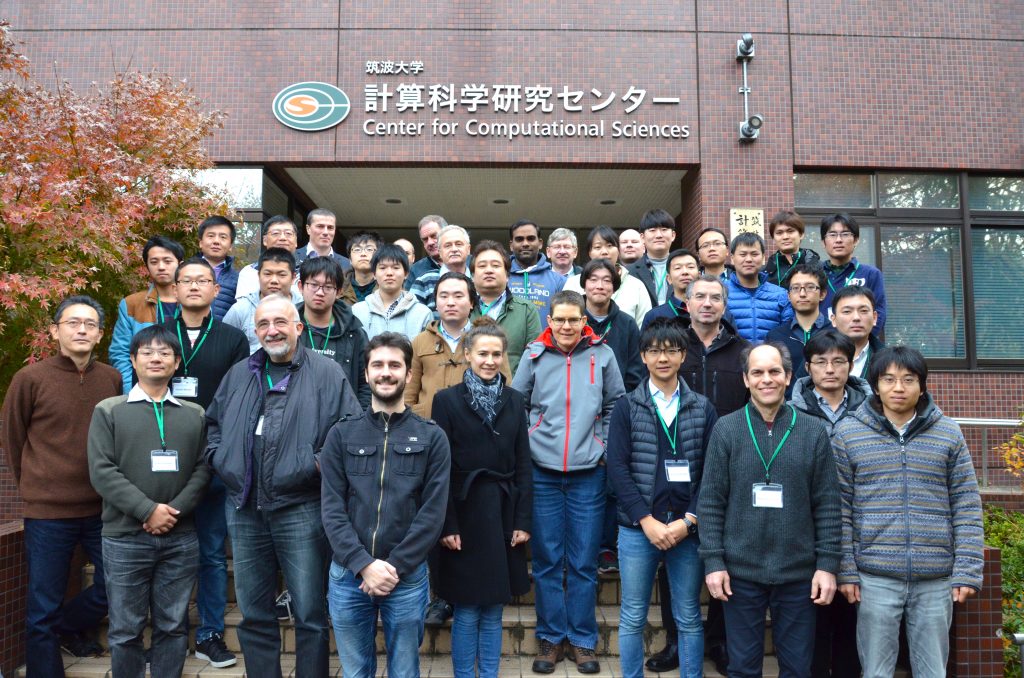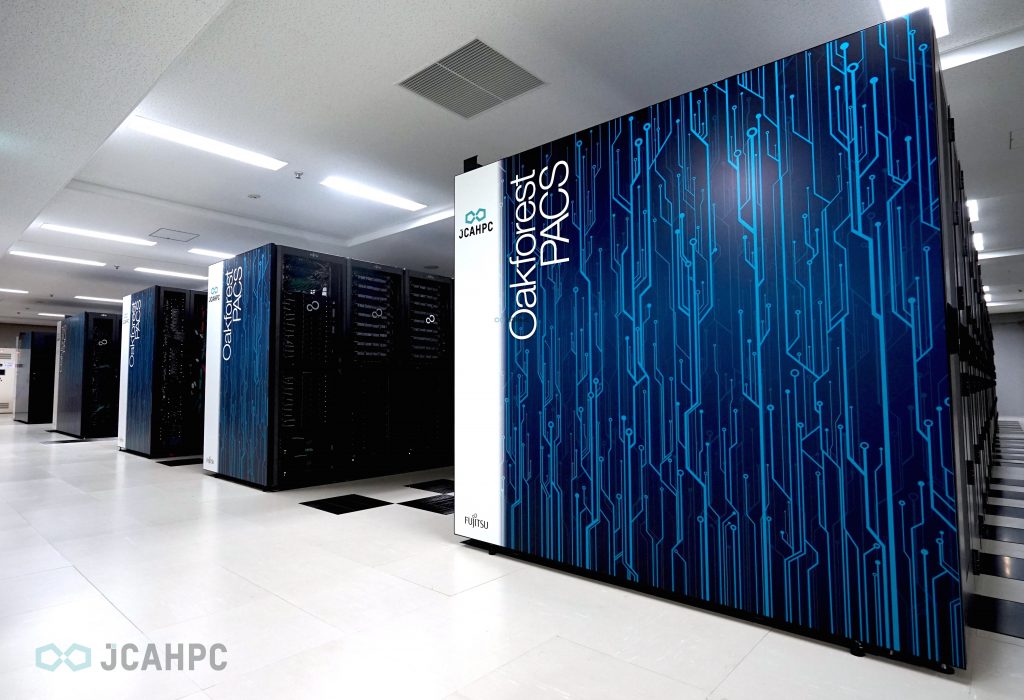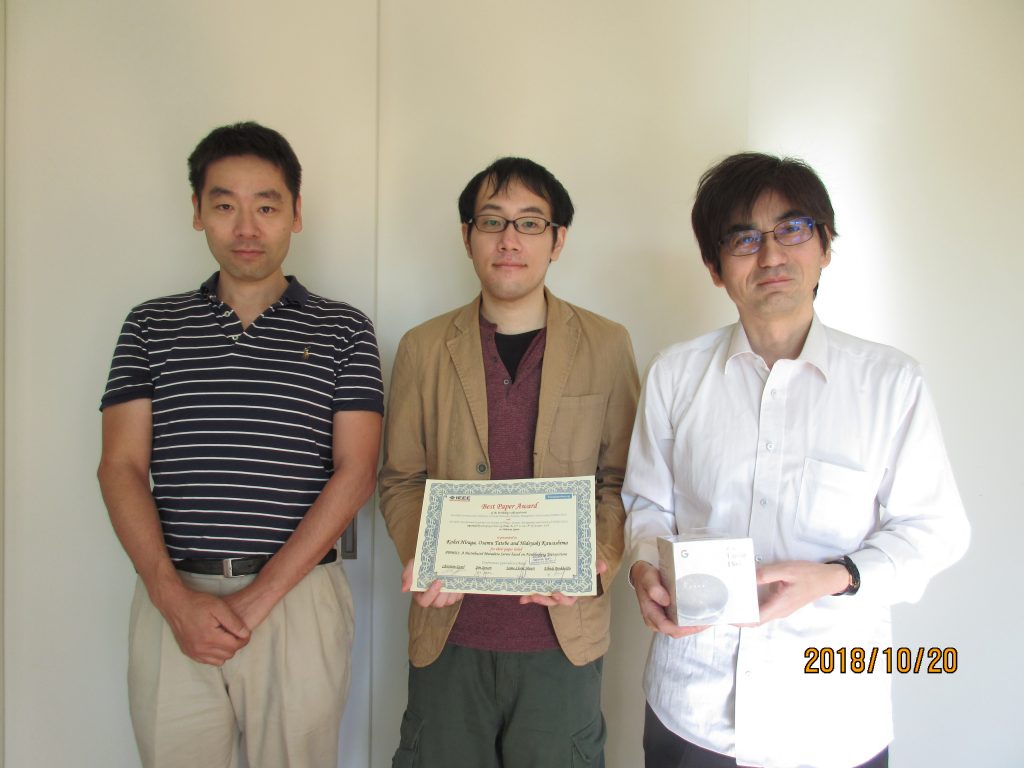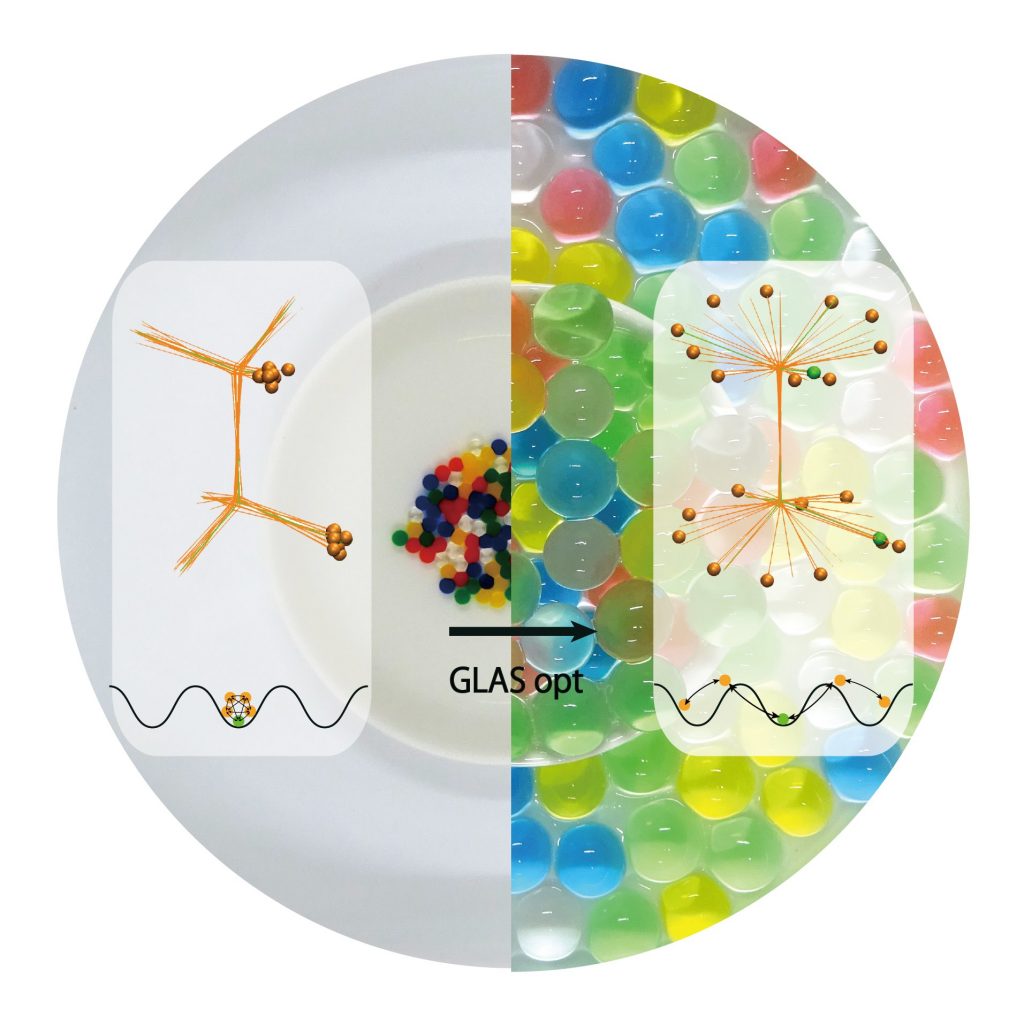Tsukuba-CCS workshop on “microscopic theories of nuclear structure and dynamics”
Dates and Venues / Invited Speakers / Program / Registration / Organizers / Travel information / Correspondence

Tsukuba-CCS workshop on “microscopic theories of nuclear structure and dynamics” will be held at Center for Computational Sciences (CCS), University of Tsukuba, Tsukuba, Japan, December 10-12, 2018.
This is the second event in the series of international workshops on nuclear structure and reactions held at the CCS (the first event was held in 2016.)
The objective of the workshop is to discuss the recent developments of the microscopic theories of nuclear structure and reactions, related advances in computational techniques for the upcoming exascale systems, and to create opportunities for new collaborations. The workshop will cover various topics including nuclear density functional theory and its extensions, nuclear shell model and cluster physics, fusion and fission dynamics, and nuclear reactions of low and intermediate energies.
The workshop will be held right after the 13th International Conference on Nucleus-Nucleus Collisions (NN2018), December 4-8, 2018, in Omiya, Saitama, Japan.
Dates and Venues
December 10-12, 2018, Center for Computational Sciences, University of Tsukuba, Japan
・ International workshop room (December 10-11)
・ meeting room A (December 12)
Invited Speakers
– Anatoli Afanasjev (Mississippi State U, USA)
– Andrei Andreyev (York, UK)
– Aurel Bulgac (UW, USA)
– Alexis Diaz-Torres (Surrey, UK)
– Jacek Dobaczewski (York, UK)
– Yasuro Funaki (Kanto Gakuin, Japan)
– Takenori Furumoto (Yokohama National U, Japan)
– Shun Furusawa (RIKEN, Japan)
– Stephane Goriely (ULB, Belgium)
– Markus Kortelainen (Jyvaskyla, Finland)
– Bharat Kumar (IUCAA, India)
– Elena Litvinova (WMU, USA)
– Laura Moschini (ULB, Belgium)
– Petr Navratil (TRIUMF, Canada)
– Witold Nazarewicz (MSU, USA)
– Valentin O. Nesterenko (JINR, Russia)
– Tamara Niksic (Zagreb, Croatia)
– Katsuhisa Nishio (JAEA, Japan)
– Junchen Pei (Beijing, China)
– Chong Qi (KTH, Sweden)
– Guillaume Scamps (Tsukuba, Japan)
– Kazuyuki Sekizawa (Niigata, Japan)
– Yusuke Tanimura (Tohoku, Japan)
– Naofumi Tsunoda (Tokyo, Japan)
– Yutaka Utsuno (JAEA, Japan)
– Michal Warda (Lublin, Poland)
– Cheng-Jun Xia (Zhejiang, China)
– Kazuki Yoshida (JAEA, Japan)
Program
December 10 Monday
venue: International workshop room
|
Chair: Takashi Nakatsukasa (CCS, Univertsity of Tsukuba)
|
|
|
|
Masayuki Umemura
(Director, CCS, University of Tsukuba) |
|
|
|
|
Michał Warda
(Maria Curie-Skłodowska University)
|
|
|
|
|
Guillaume Scamps (CCS, University of Tsukuba)
|
|
|
|
Fission Dynamics based on Langevin Equations
|
Yoshihiro Aritomo (Kindai University)
|
|
|
|
|
Shoya Tanaka (Kindai University)
|
|
|
|
|
|
Chair: Kazuyuki Sekizawa (Niigata University)
|
|
|
|
Yusuke Tanimura (Tohoku University)
|
|
|
|
|
Kouichi Hagino (Tohoku University)
|
|
|
|
|
Kazuki Yoshida (Japan Atomic Energy Agency)
|
|
|
|
|
Yasuro Funaki (Kanto Gakuin University)
|
|
|
|
|
|
Chair: Kouichi Hagino (Tohoku University)
|
|
|
|
Andrei Andreyev (University of York)
|
|
|
|
|
Katsuhisa Nishio (Japan Atomic Energy Agency)
|
|
|
|
|
Yutaka Utsuno
(Japan Atomic Energy Agency)
|
|
|
|
|
Anatoli Afanasjev (Mississippi State University)
|
|
|
|
|
|
Chair: Nobuo Hinohara (CCS, University of Tsukuba)
|
|
|
|
Elena Litvinova (Western Michigan University)
|
|
|
|
|
Valentin Nesterenko
(Joint Institute for Nuclear Research)
|
|
|
|
|
Witold Nazarewicz
(FRIB / Michigan State University)
|
|
|
|
Get-together Party (venue: Soup Factory)
|
December 11 Tuesday
venue: International workshop room
|
Chair: Anatoli Afanasjev (Mississippi State University)
|
|
|
|
Alexis Diaz-Torres (University of Surrey)
|
|
|
|
|
Kazuyuki Sekizawa (Niigata University)
|
|
|
|
|
Yukio Hashimoto (CCS, University of Tsukuba)
|
|
|
|
|
|
Chair: Masaaki Kimura (Hokkaido University)
|
|
|
|
Chong Qi
(KTH Royal Institute of Technology)
|
|
|
|
|
Naofumi Tsunoda (CNS, University of Tokyo)
|
|
|
|
|
Kouhei Washiyama (Kyushu University)
|
|
|
|
|
Koichi Sato (Osaka City University)
|
|
|
|
|
|
Chair: Yukio Hashimoto (CCS, University of Tsukuba)
|
|
|
|
Stéphane Goriely (Université libre de Bruxelles)
|
|
|
|
|
Masaaki Kimura (Hokkaido University)
|
|
|
|
An ab initio study of the J=0 continuum structures in 4He
|
Shigeyoshi Aoyma (Niigata University)
|
|
|
|
|
|
Chair: Takuma Matsumoto (Kyushu University)
|
|
|
|
|
|
|
|
|
Laura Moschini (Université libre de Bruxelles)
|
|
|
|
|
Nobuo Hinohara
(CCS, University of Tsukuba)
|
|
December 12 Wednesday
|
|
Chair: Guillaume Scamps (CCS, University of Tsukuba)
|
|
|
|
Jacek Dobaczewski (University of York)
|
|
|
|
|
Takashi Nakatsukasa (CCS, University of Tsukuba)
|
|
|
|
|
Aurel Bulgac (University of Washington)
|
|
|
|
|
|
Chair: Witold Nazarewicz (FRIB / Michigan State University)
|
|
|
|
Tamara Nikšić (University of Zagreb)
|
|
|
|
|
Markus Kortelainen (University of Jyväskylä)
|
|
|
|
|
Haozhao Liang (RIKEN / University of Tokyo)
|
|
|
|
|
Tomoya Naito (University of Tokyo / RIKEN)
|
|
|
|
|
|
Chair: Haozhao Liang (RIKEN / University of Tokyo)
|
|
|
|
Junchen Pei (Peking University)
|
|
|
|
|
Takenori Furumoto (Yokohama National University)
|
|
|
|
|
Shun Furusawa (RIKEN iTHEMS)
|
|
|
|
|
|
Chair: Kouhei Washiyama (Kyushu University)
|
|
|
|
|
|
|
|
|
Cheng-Jun Xia (Ningbo Institute of Technology Zhejiang University)
|
|
|
|
|
Tsunenori Inakura (Tokyo Institute of Technology)
|
|
|
|
|
Soonchul Choi (Soongsil University)
|
|
|
|
|
|
|
Registration
Participants should fill out the registration form by November 2, 2018.
(registration form is closed)
Financial Support
Limited funds are available for participants. We cannot support international airfare.
Support may be provided for oral speakers. Those requesting financial support should apply for a talk at the registration, no later than November 2, 2018.
Organizers
A. Afanasjev (Mississippi State Univ., USA)
K. Hagino (Tohoku Univ.)
Y. Hashimoto (Univ. of Tsukuba)
N. Hinohara (Univ. of Tsukuba)
N. Itagaki (Kyoto Univ.)
M. Kimura (Hokkaido Univ.)
H. Liang (RIKEN/Univ. Tokyo)
T. Matsumoto (Kyushu Univ.)
T. Nakatsukasa (Univ. of Tsukuba)
W. Nazarewicz (Michigan State Univ., USA)
K. Sekizawa (Niigata Univ.)
Host
Center for Computational Sciences, University of Tsukuba
Co-sponsored: JSPS and NSFC (Japan-China Scientific Cooperation Program)
Travel information
Travel to Tsukuba station/Tsukuba-Center bus terminal from airports
-Airport bus bound for Tsukuba-Center (2 hours)
Bus stops at airports (bus stop No. 6 at International Terminal / bus stop 13 at Domestic Terminals 1&2)
Tickets available at the bus ticket counter at the arrival level/vending machine near the bus stops.
Bus timetable and fare
-Trains
Tokyo Monorail from Haneda Airport to Hamamatsucho(浜松町) (bound for Hamamatsucho, 13 min)
JR Yamanote Line/Keihin-Tohoku Line from Hamamatsucho(浜松町) to Akihabara(秋葉原) (bound for Tokyo/Ueno/Omiya/Minami-Urawa, 10 min)
Tsukuba Express Line from Akihabara(秋葉原) to Tsukuba(つくば) (bound for Tsukuba, 45 min)
-Airport bus bound for Tsukuba-Center/JR-Tsuchiura station (70 min to Tsukuba-Center)
Bus stops at the terminals (No. 8 in Terminal 1, No. 10 in Terminal 2, No. 8 in Terminal 3)
Tickets available at the highway bus ticket counter (arrival level)
Bus timetable and fare
Reservation required for the return trip from Tsukuba to Narita
-Trains
Keisei Access Express (Keisei Narita Sky Access Line) from Narita Airport Terminals 1/2-3 to Higashi-Matsudo(東松戸) (DO NOT take Skyliner) (36 min)
JR Musashino Line from Higashi-Matsudo(東松戸) to Minami-Nagareyama(南流山) (bound for Fuchu-Hommachi, 9 min)
Tsukuba Express Line from Minami-Nagareyama(南流山) to Tsukuba(つくば) (bound for Tsukuba, 24 min)
Travel to Tsukuba station from Omiya (NN2018 conference venue)
-Trains
JR Keihin-Tohoku Line from Omiya(大宮) to Minami-Urawa(南浦和) (bound for Ofuna/Isogo, 12 min)
JR Musashino Line from Minami-Urawa(南浦和) to Minami-Nagareyama(南流山) (bound for Tokyo/Minami-Funabashi, 36 min)
Tsukuba Express Line from Minami-Nagareyama(南流山) to Tsukuba(つくば) (bound for Tsukuba, 24 min)
Travel to CCS from Tsukuba station(Tsukuba Center Bus Terminal)
-Bus
bus stop No.6 at Tsukuba-Center bus terminal to Dai Ichi Area Mae (avoid counter-clockwise one (左回り))
Travel information (Nuclear Theory Group)
Travel information (CCS)
Travel information (University)
Bus route map
Bus time table
Bus fare: 270 yen (Tsukuba Center – Dai Ichi Area Mae)/ 200 yen (Tsukuba Center – Daigaku Kaikan Mae)
University of Tsukuba information
University of Tsukuba Map and Location
University of Tsukuba campus map
enlarged map around CCS
—————————————————————————
Correspondence
Nobuo Hinohara
Center for Computational Sciences
University of Tsukuba
Tsukuba, Ibaraki 305-8577
Japan
Email: tsukuba-ccs18 [at] nucl.ph.tsukuba.ac.jp (please replace [at] with @)




